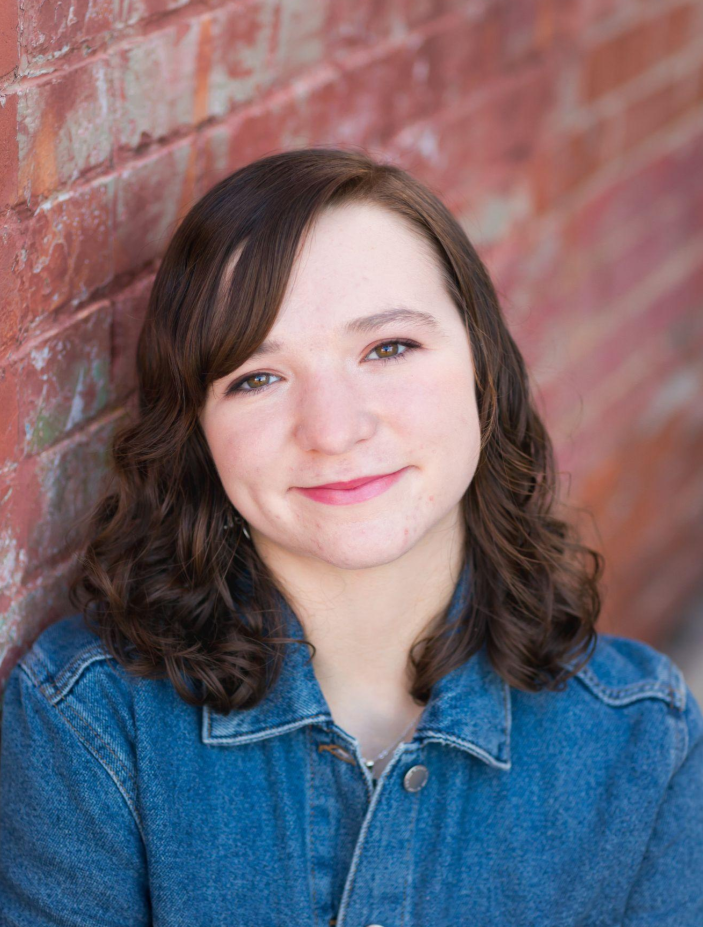Keywords: Virtual Reality, Biomass, Stress Reduction
This Q&A highlight features Rachel Masters, who received an Honorable Mention in the 2023 CRA Outstanding Undergraduate Researchers award program. Rachel finished her undergraduate degree at Colorado State University (CSU) and is now pursuing a PhD in Computer Science there.
What brought you to computing research?
I joined a virtual reality (VR) hackathon in my freshman year at Colorado State University. My team worked on a music immersion application for Alzheimer’s patients. Several people important to me have suffered from the disease, so it was inspiring to see the potential of VR in helping people. Motivated to contribute, I talked to Dr. Albert Lionelle, my lead TA instructor, who suggested I contact Dr. Francisco Ortega, a VR researcher at my university. Dr. Ortega advised me to apply for a research experience for undergraduates (REU) at the University of Minnesota with Dr. Victoria Interrante, where I formally began my VR research.
What challenges did you encounter when you started your research?
The biggest challenge was that this was the first time I had done research. The REU experience required me to lead a new project, so I had to teach myself many aspects of research. This took some time, but it helped me familiarize myself with the research process and field.
Can you tell us about your project?
My goal was to explore the impact of biomass, which refers to organic living material like plants, in VR environments for stress reduction and mental resource restoration. Recognizing the well-established connection between nature and physical/mental well-being, I aimed to address the limitations of access to natural settings, particularly for individuals in hospitals or nursing homes, by investigating VR as an alternative. The challenge was in designing VR nature environments that could maximize restorative benefits to investigate the impact of biomass on stress reduction in virtual reality (VR) environments. Our study initially induced stress in the participants, who were then exposed to two distinct virtual reality (VR) environments to assess their impact on the induced stress: a plant-free canyon and a lush forest with living plants. The subsequent measurement aimed to observe the role of biomass, in eliciting restorative effects. Although the forest environment demonstrated superior results compared to the canyon, the differences were not statistically significant. Despite this, the overall findings from this preliminary study on VR green spaces suggest promising potential for their role in stress reduction and mental resource restoration. Findings from this work were published at the ACM Symposium on Applied Perception (SAP’22).
How do you balance research with other interests?
I enjoy learning about various subjects, making defining my idea of balance challenging. I see research as just one of my diverse interests and curiosities. My other interests, including photography and my involvement in outdoor activities such as camping, fishing, and hiking, have proven beneficial to my research and have not only been a source of personal enjoyment but have also served as inspiration for designing virtual environments in my research. The hands-on experiences in nature have facilitated a deeper understanding of environmental science concepts, as I can relate to and comprehend these concepts through my own lived experiences. In essence, my approach to balance is embracing a multitude of interests and constantly seeking out new experiences to break away from routine. This not only rejuvenates my perspective but also brings new skills and insights to my research.
How did your identity affect your research experience?
My identity as a practicing Christian is a significant motivation for my actions and passion. The virtue of selflessness, particularly caring for strangers, has always inspired me. Despite facing challenges, my grandparents served as profound examples of selflessness and commitment to community service throughout my life. This has driven me in two ways: first, to lead a life dedicated to helping others and using my talents for positive change, and second, to find ways to assist not only my grandparents but all those experiencing stress and in need of support. As someone who is ambitious but is also dealing with chronic pain from spinal issues, I understand the importance of finding relief during challenging times.
Do you have any advice for other students looking to get into research?
Learning new things can be daunting, especially when faced with dense material or unfamiliar terminology, creating a significant barrier for many individuals in science, particularly undergraduates in the early stages of their education. My advice is that if the subject interests you, dive into it even if you are afraid of failing. Expect setbacks because everyone encounters challenges when delving into new knowledge, and learning from these failures is the key to eventual success. When confronted with a formidable task, break it down into smaller, manageable parts using familiar concepts. Despite falling short of my ambitious goals at times, I find myself more impressed by the progress I’ve made than disappointed by the problems encountered, which further motivates me to persevere and try again.
— Edited by Yasra Chandio and Alejandro Velasco
